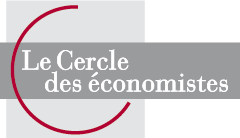What have we learnt in 2020?
Overview
The first lesson of 2020 is, as epidemiologists have long predicted, that there can and will be other pandemics, that the real health threat is infectious diseases and that we must therefore prepare for other crises of this type. In the field of economics, there are many lessons to be learned. First, the complexity of capitalism. It would have collapsed without the help of the states, it did not protect the most fragile populations. But it produced the RNA-M vaccines, with the capacity to make researchers take risks and to finance this risk-taking. The challenge will be to reform capitalism without eliminating this dynamism. Secondly, we have seen the massive intervention of States and Central Banks and the abandonment of all conservatism in economic policies. First there was a crisis intervention that nobody criticised (huge public deficits, monetised by the Central Banks), but there is now an increased structural intervention of the States (public investment plans, willingness to relocate, improvement of social protection), necessarily financed by a tax increase. There is also a broad consensus on this increased state intervention, but the challenge for states will be to be effective in these interventions. Do states know how to choose the public investments that support long-term growth, do they know how to identify disruptive innovations? Should they keep companies or support them by giving them the initiative (DARPA in the United States)? The intervention of central banks poses a specific problem: what happens in the long term when the quantity of money is massively increased and interest rates are maintained at almost zero? We also learned that economies were going to become more digital (teleworking, online consumption, new means of payment, etc.). These movements existed but have been accelerated by the crisis. Some hoped that they would bring additional growth in the long term; others feared that they would amplify the polarisation of labour markets. Some believed that consumers would become more frugal: consume less, buy local products, travel less. This hope will probably be dashed, as shown by the jump of consumption in all countries when health constraints are lifted. Finally, the Covid crisis has led, whether there is a scientific link or not, to an acceleration of the energy transition, which can also be taken in two ways: it is of course essential, but it will pose major problems for several sectors of activity (automobile, aeronautics, energy) and their employees. All in all, we have learned that we need to think more about the risks and conditions of resilience of economies and societies; that we need to ask ourselves how to organise the role of the state: not incentives, direct intervention, financing, etc.; that crises accelerate developments that are already in place (digitalisation of the economy); that capitalism needs to be reformed, but without destroying its responsiveness.
Speakers




-
Maison Blanche
Coordinator

Moderator













